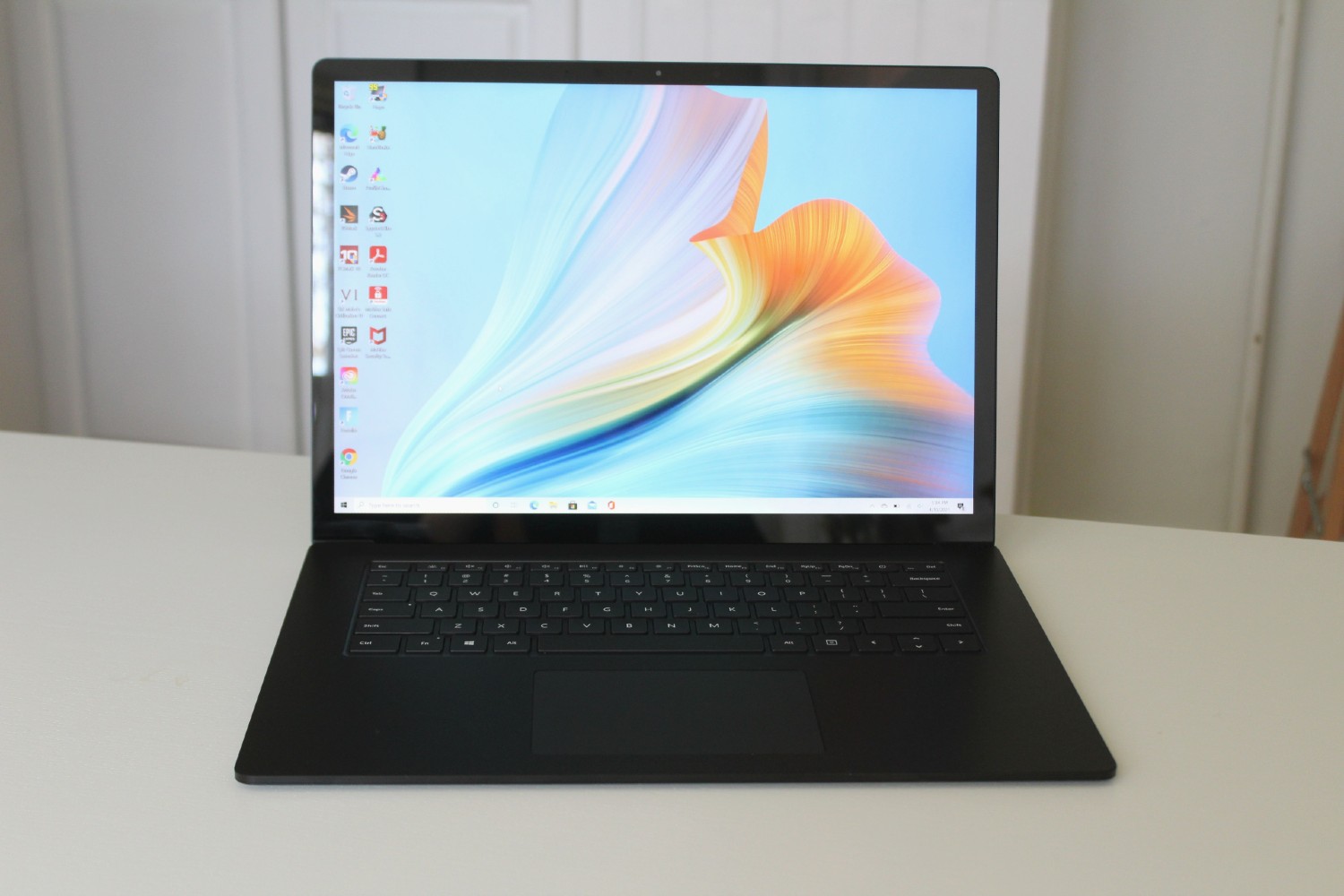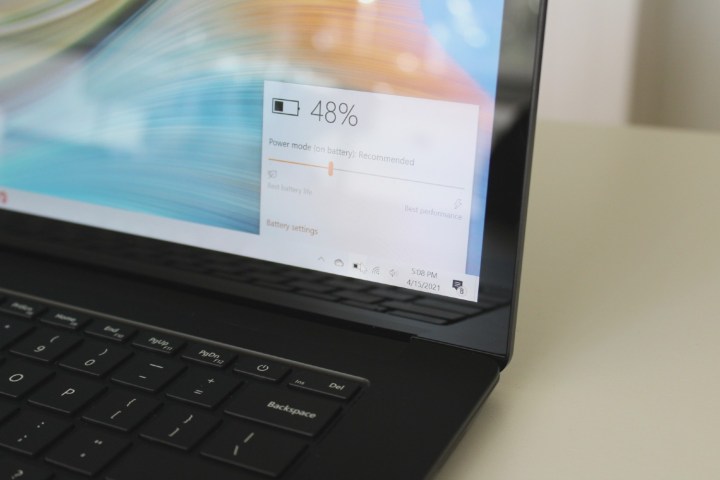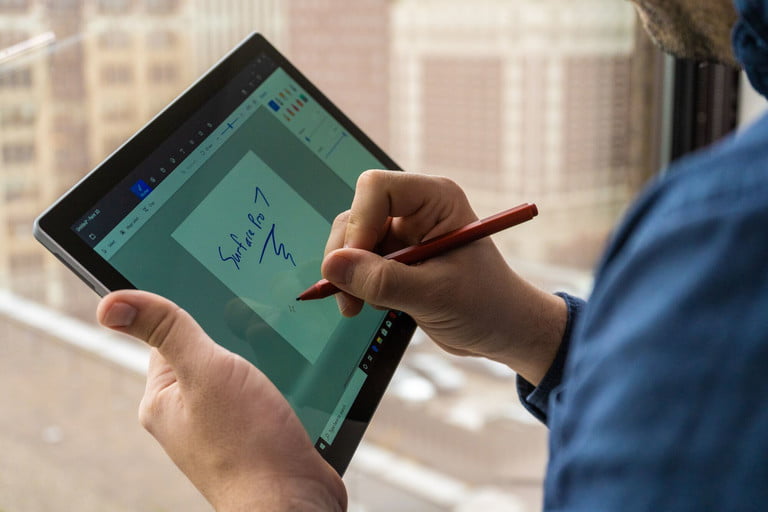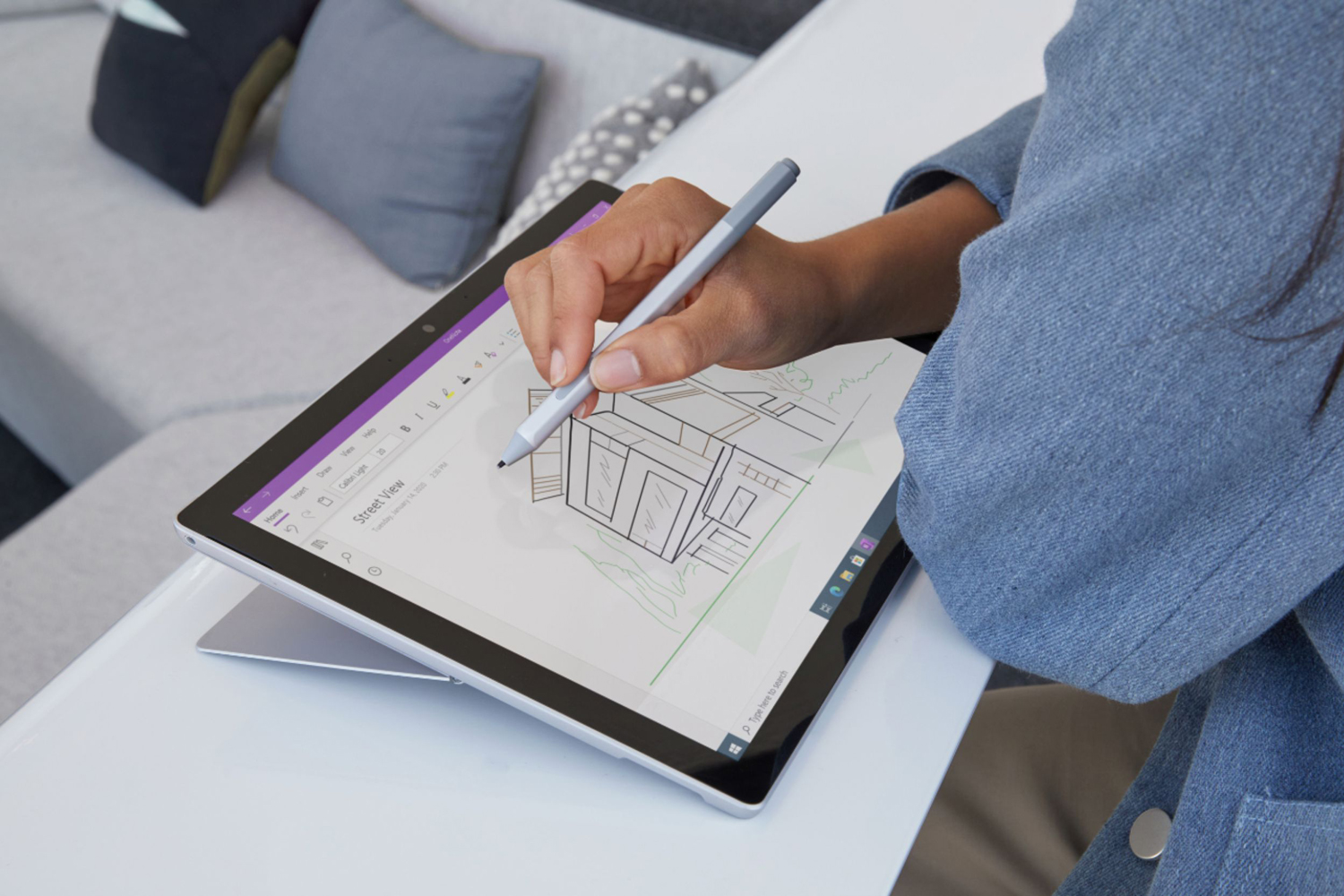Since releasing the original Surface tablet in 2012, Microsoft has grown its PC business into a multibillion-dollar enterprise. The Surface line now includes the Surface Pro 7 and Surface Go 2 tablets, the Surface Book 3 detachable 2-in-1, the traditional clamshells Surface Laptop 4 and Surface Laptop Go, and the high-end all-in-one desktop Surface Studio 2. That’s quite the lineup, and you’ll find a Surface on a number of our best-of lists such as best tablets and best laptops.
The two most mainstream lines, though, are the Surface Pro and the Surface Laptop. Each has its strengths and weaknesses, and you’ll want to keep them in mind if you’re looking for a Surface and choosing between the two.
Design

In the simplest terms, the Surface Pro 7 is a tablet, and the Surface Laptop 4 is a traditional clamshell. That makes the former a very thin and light slate that can morph into something akin to a clamshell when you snap on the detachable keyboard. How thin and light? Try 0.33 inches and 1.74 pounds for just the tablet. The Surface Laptop 4, on the other hand, is a traditional clamshell design that’s wider, deeper, thicker at 0.57 inches in its 13.5-inch version and 0.58 inches in its 15-inch version, and 2.84 pounds and 3.4 pounds, respectively.
The Surface Pro 7 can do real work, just like the Surface Laptop 4. It’s not as comfortable in laptop mode, especially on your lap, where the combination of tablet and detachable keyboard can be a little wobbly, but the keyboard itself is comfortable enough for fast typing without fatigue. The Surface Laptop 4 is excellent in traditional laptop form, obviously, and it has an excellent keyboard with deep travel and a precise, clicky mechanism.
The difference is that while the Surface Laptop 4’s display is touch- and pen-enabled, the Surface Pro 7 is made for touch and pen use. Inking on the tablet is smooth and accurate, letting you handwrite your notes and create professional sketches with ease. Pop off the keyboard, and you have a device that can be used more comfortably in more places than the larger Surface Laptop 4.
The Surface Pro 7 is constructed of magnesium alloy and can be purchased in the traditional Surface Platinum or a Matte Black color scheme. The optional Surface Type Cover keyboard can be covered in either standard or Alcantara fabric. The Surface Laptop 4 is made of aluminum alloy, with color and keyboard deck material options that vary by size. The 13.5-inch model can be configured in Platinum or Ice Blue with Alcantara fabric and Matte Black or Sandstone with a metal palm rest. The 15-inch model is available in Platinum or Matte Black, and Alcantara fabric is not an option. Both machines offer top-notch build quality with no bending or flexing in the chassis or display.
In terms of connectivity, the two machines are surprisingly similar. The Surface Pro 7 has a USB-A port, a USB-C port, a 3.5mm audio jack, and the Surface Connect port to attach to the charger and Microsoft’s docking options. The Surface Laptop 4 has the same ports, exactly. The one difference is that the Surface Pro 7 also has a microSD card reader, where the Surface Laptop 4 does not. Both machines offer Wi-Fi 6 and Bluetooth 5 wireless connectivity.
Performance

The 13.5-inch Surface Laptop 4 offers a choice between 11th-generation Intel Core i5-1135G7 and i7-1185G7 processors and a special Microsoft Surface edition of the AMD Ryzen 5 4680U CPU. The 15-inch model offers just the Core i7-1185G7 or a faster Ryzen 7 4980U Microsoft Surface Edition. That gives the laptop a faster option than the Surface Pro 7, which is limited to 10th-gen Intel low-power Core i3-1005G1, Core i5-1035G4, and Core i7-1065G7 CPUs. In terms of processor performance, the Surface Laptop is the faster option by a wide margin.
Graphics performance is more similar. The Surface Pro 7 is limited to Intel UDH or Iris Plus graphics, while the Surface Laptop 4 offers Intel Iris Xe or AMD Radeon onboard graphics. That means both machines are limited to integrated graphics with no options for a discrete GPU for gaming or speeding up creative applications. The Surface Laptop 4 will be faster than the Surface Pro 7, but not by the same margin as with the CPU.
You’ll find the Surface Pro 7 to be best for lighter productivity tasks like working with Office documents, browsing the web, and handling email. The Surface Laptop 4, particularly the AMD version, can handle more strenuous productivity as well as tackling low-end creative work. Neither is going to be a video editor’s dream laptop, but neither is meant for that kind of work.
Display
The Surface Pro 7 is built around a 12.3-inch IPS display in the 3:2 aspect ratio and with a high 2,736 x 1,824 (267 PPI) resolution. The Surface Laptop 4 offers a choice of 3:2 IPS displays, a 13.5-inch inch version at 2,256 x 1,504 (201 PPI) and a 15-inch version at 2,496 x 1,664 (201 PPI) resolutions.
We tested the Surface Laptop 4 15-inch display and the Surface Pro 7 display, and both offer similar quality. Both are bright at around 377 nits, exceeding our preferred 300-nit threshold, and offer good contrast ratios at 970:1 and 1140:1, respectively. We prefer to see contrast at over 1,000:1, and so the Surface Pro 7 wins out here.
In terms of color support, the Surface Laptop 4 provides 73% of AdobeRGB and 96 of sRGB, while the Surface Pro 7 covers just 70% of AdobeRGB and 93% of sRGB. The Surface Pro 7’s color accuracy was poor at a DeltaE of 3.51 (1.0 or less is considered excellent), compared to the Surface Laptop 4 at a much better 1.44.
Neither of these machines offers displays that will please creative professionals who crave the widest and most accurate colors, but the Surface Laptop is closer. The difference, in contrast, weighs in the Surface Pro 7’s favor, meaning it will have blacker text on white backgrounds, for example. Overall, both are good displays for the premium laptop segment, although not the best you’ll find.
Portability

We’ve already established that the Surface Pro 7 is the thinner and lighter device, even with its detachable keyboard. But the Surface Laptop 4 is very thin and light for its class, especially the 15-inch model. Neither will weigh you down or take up too much space in your backpack.
We didn’t run the Surface Laptop 4 AMD version through our full suite of battery tests, but the 15-inch model achieved a very strong 13.5 hours in our web browsing test. We consider anything longer than 10 hours to be an achievement in this benchmark. That compares to the Surface Pro 7 at just 8.35 hours, clearly considerably less. The Surface Laptop 13.5-inch AMD version is expected to get slightly better battery life, while the Intel versions are expected to get slightly less.
The Surface Pro 7 just isn’t big enough to pack in as much battery life, and it has a higher-resolution display than the Surface Laptop 4, albeit considerably smaller. The Surface Laptop 4, therefore, will likely last you a full working day and then some, where you might be pulling out your Surface Pro 7 charger to finish the day.
Laptop or tablet? That’s what the decision comes down to
The Surface Pro 7 starts at $750 for a Core i3, 4GB of RAM, and a 128GB solid-state drive, up to $2,300 for a Core i7, 16GB of RAM, and a 1TB SSD. It’s clearly a premium tablet with a low entry-level price to go with its entry-level configuration.
The Surface Laptop 4 13.5-inch starts at $1,000 for an AMD Ryzen 5 4680U, 8GB of RAM, and a 256GB SSD and tops out at $2,300 for a Core i7, 32GB of
Which is the right device for you comes down to whether you want a tablet or a traditional laptop. Either way, you’ll get excellent build quality, a great display, and support for Windows 10’s full suite of touch and ink. If you want a faster machine with better battery life, the Surface Laptop 4 is the way to go, but the Surface Pro 7 will support your writing and drawing needs in a way that the laptop cannot.
Editors' Recommendations
- Best refurbished laptop deals: How to find cheap used computers
- Best MacBook deals: Get an Air for $605 and save on M3 MacBook Pro
- Best laptop deals: Save on the Dell XPS 14, MacBook Pro 16 and more
- HP Envy deals: HP’s most popular laptop starts at $630
- Best gaming laptop deals: Alienware, Razer, Asus and more



